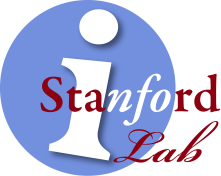Reverse-Engineering Censorship in China
Gary King, Harvard
Abstract
Chinese government censorship of social media constitutes the largest selective suppression of human communication in recorded history. In three ways, we show, paradoxically, that this large system also leaves large footprints that reveal a great deal about itself and the intentions of the government. First is an observational study where we download all social media posts before the Chinese government can read and censor those they deem objectionable, and then detect from a network of computers all over the world which are censored. Second, we conduct a large scale randomized experiment by creating accounts on numerous social media sites spread throughout the country, submitting different randomly assigned types of social media texts, and then detecting which types are censored. And finally, we supplement the current approach of conducting uncertain (and potentially unsafe) confidential interviews with insiders via participant observation by setting up our own social media site in China, contracting with Chinese firms to install the same censoring technologies as existing sites, and -- with direct access to their software, documentation, and even customer service help desk support -- reverse engineering how it all works. Our results demonstrate, contrary to prior understandings, that criticism of the state, its leaders, and their policies are routinely published whereas posts with collective action potential are much more likely to be censored (regardless of whether they are for or against the state). We are also able to clarify the internal mechanisms of the Chinese censorship apparatus, and show how changes in censorship behavior reveal government intent by presaging their action on the ground. This talk is based on two papers, joint with with Jennifer Pan and Margaret Roberts, available at http://j.mp/ChinaExp and http://j.mp/ChinaObs.
Bio
Gary King is the Albert J. Weatherhead III University Professor at Harvard University -- one of 24 with the title of University Professor, Harvard's most distinguished faculty position. He is based in the Department of Government (in the Faculty of Arts and Sciences) and serves as Director of the Institute for Quantitative Social Science. King develops and applies empirical methods in many agq reas of social science research, focusing on innovations that span the range from statistical theory to practical application.
King has been elected Fellow in 7 honorary societies (National Academy of Sciences 2010, National Academy of Social Insurance 2014, American Statistical Association 2009, American Association for the Advancement of Science 2004, American Academy of Arts and Sciences 1998, Society for Political Methodology 2008, and American Academy of Political and Social Science 2004), President of the Society for Political Methodology (1997-1999), and Vice President of the American Political Science Association (2003-2004). He was appointed a Fellow of the Guggenheim Foundation (1994-1995), Visiting Fellow at Oxford (1994), and Senior Science Advisor to the World Health Organization (1998-2003). King has won more than 40 "best of" awards for his work -- including the Career Achievement Award (2010), Warren Miller Prize (2008), McGraw-Hill Award (2006), Durr Award (2005), Gosnell Prize (1999 and 1997), Outstanding Statistical Application Award (2000), Donald Campbell Award (1997), Eulau Award (1995), Mills Award (1993), Pi Sigma Alpha Award (2005, 1998, and 1993), APSA Research Software Award (2005, 1997, 1994, and 1992), Okidata Best Research Software Award (1999), Okidata Best Research Web Site Award (1999), Mendelsohn Excellence in Mentoring Award (2011), Kellogg/Notre Dame Award (2014), among others. His more than 150 journal articles, 20 open source software packages, and 8 books span most aspects of political methodology, many fields of political science, and several other scholarly disciplines.
King's work is widely read across scholarly fields and beyond academia. He was listed as the most cited political scientist of his cohort; among the group of "political scientists who have made the most important theoretical contributions" to the discipline "from its beginnings in the late-19th century to the present"; and on ISI's list of the most highly cited researchers across the social sciences. His work on legislative redistricting has been used in most American states by legislators, judges, lawyers, political parties, minority groups, and private citizens, as well as the U.S. Supreme Court. His work on inferring individual behavior from aggregate data has been used in as many states by these groups, and in many other practical contexts. His contribution to methods for achieving cross-cultural comparability in survey research have been used in surveys in over eighty countries by researchers, governments, and private concerns. King led an evaluation of the Mexican universal health insurance program, which includes the largest randomized health policy experiment to date. The statistical methods and software he developed are used extensively in academia, government, consulting, and private industry. He is a founder, and an inventor of the original technology for, Learning Catalytics (acquired by Pearson) and Crimson Hexagon, among others.
King has had many students and postdocs, many of whom now hold faculty positions at leading universities and companies. He has collaborated with more than seventy scholars, including many of his students, on research for publication. He has served on more than 30 editorial boards; on the governing councils of the American Political Science Association, Inter-university Consortium for Political and Social Research, the Society for Political Methodology, and the Midwest Political Science Association; and on several National Research Council and National Science Foundation panels.
King received a B.A. from SUNY New Paltz (1980) and a Ph.D. from the University of Wisconsin-Madison (1984). His research has been supported by the National Science Foundation, the Centers for Disease Control and Prevention, the World Health Organization, the National Institute of Aging, the Global Forum for Health Research, and centers, corporations, foundations, and other federal agencies.


